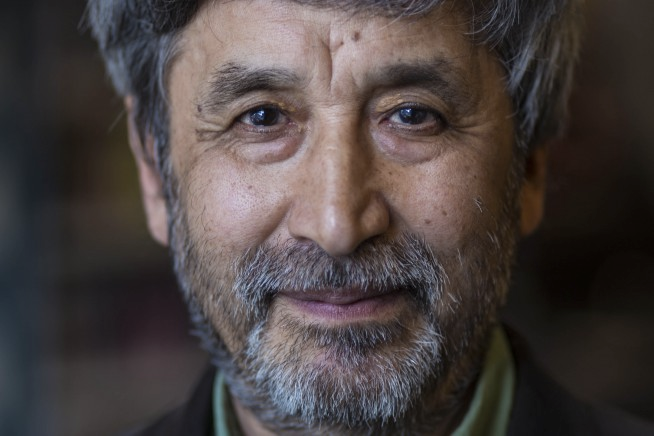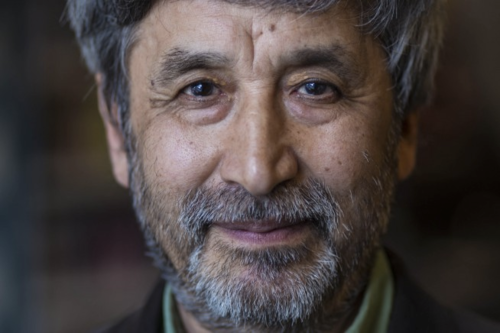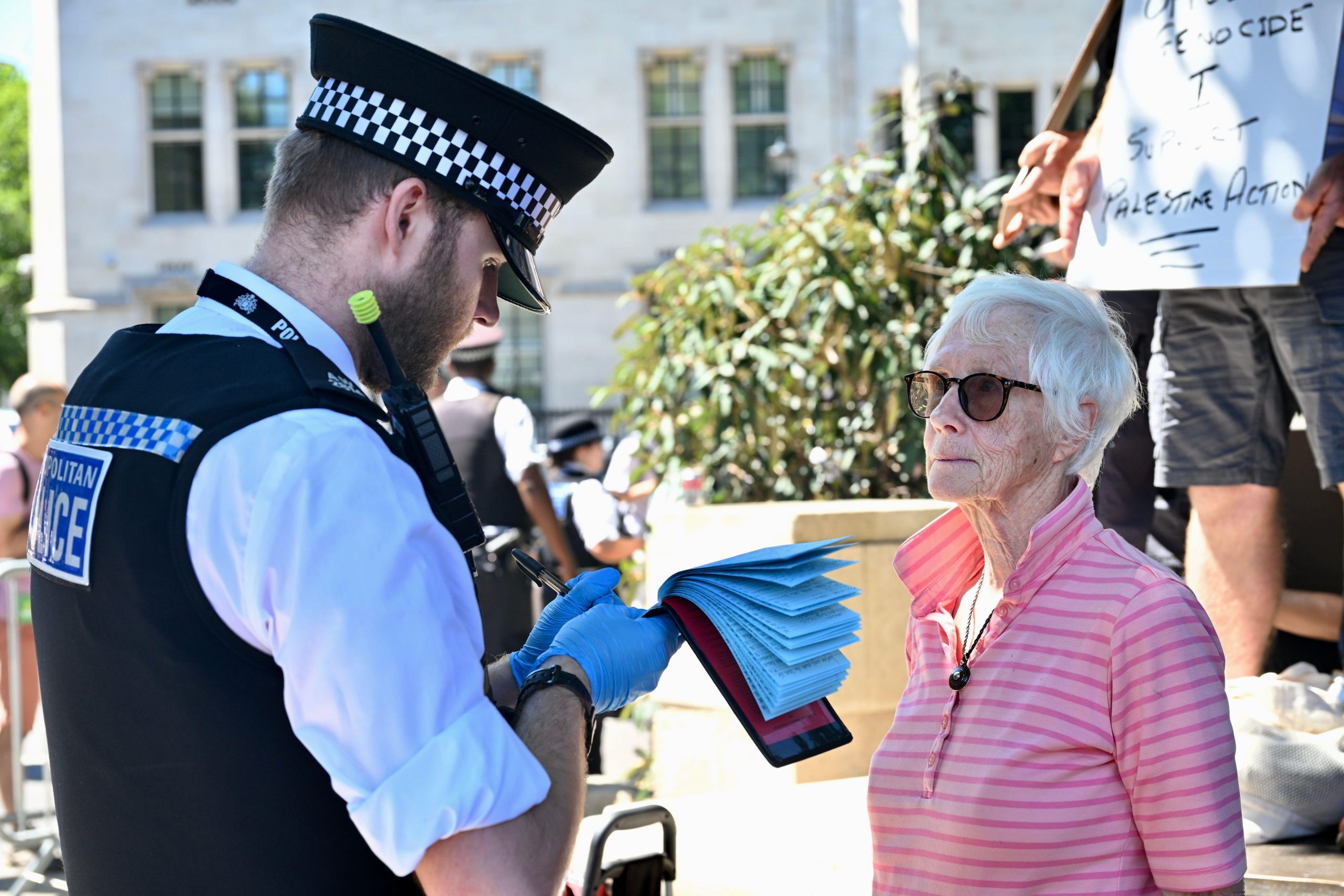[vc_row][vc_column][vc_column_text]

Journalist and author Hamid Ismailov
Hamid Ismailov deserves an apology. Or at the very least, an explanation.
It has been 26 years since the events that led Uzbek journalist Hamid Ismailov to leave his home country of Uzbekistan and flee to the United Kingdom. In the 1990s, Ismailov was working with a BBC television crew to make a film about Uzbekistan. The repressive regime in power under Islam Karimov opened a criminal case against Ismailov. The authorities said Ismailov was trying to overthrow the government.
Friends advised Ismailov to flee Uzbekistan after threats against his family and attacks on his home. So he did. Twenty-four years later, he still hasn’t been back.
That’s not for lack of trying. Ismailov attempted to go back as recently as last year after the death of Karimov in 2016. He was denied entry.
One of the most widely published Uzbek writers in the world, Ismailov’s books are banned in his home country. Mentions of Ismailov are not tolerated. His existence has essentially been erased from the daily cultural life of his homeland. However, in the age of the internet, Ismailov has found ways to reach the Uzbek audience through social media sites like Facebook. He posts his novels to Facebook where Uzbeks can read them.
According to Reporters Without Borders’s press freedom index, Uzbekistan is ranked 169th out of 180 countries. With traditional media tightly controlled, the government’s attention has more recently begun cracking down on the independent news websites and instant messaging apps.
After Karimov’s death in 2016, Prime Minister Shavkat Mirziyoyev assumed power. On 2 March 2018, Uzbekistan released the world’s longest-imprisoned journalist Yusuf Ruzimuradov, who had been imprisoned for over 19 years. Ismailov expressed joy at the news of Ruzimuradov’s release but remains doubtful saying, “as much as I am hopeful, I am skeptical as well”.
In his time in exile in the United Kingdom, Ismailov has worked for the BBC World Services. In May 2010, Ismailov was appointed the BBC Writer-in-Residence, a position he held until the end of 2014. Ismailov is currently the editor for Central Asian Services at the BBC.
Hamid Ismailov spoke with Index on Censorship’s Sydney Kalich about the state of human rights in Uzbekistan, his time in exile and his newly translated book, The Devil’s Dance. Below is an edited version of their interview:
Index: What was the human rights situation like in Uzbekistan before you left and how has the situation changed over the last 23 years?
Ismailov: Unfortunately it has worsened over the years because of the autocratic regime of president Karimov, who was in power at that time and died in 2016. So all this time the situation with human rights was quite dire in Uzbekistan. Uzbekistan was always in the lower, in the bottom part of the human rights records in the world. So, nowadays with the new president, the way Shavkat Mirziyoyev acts makes us hopeful that the situation with human rights is improving because several political prisoners were freed from prison. Some activities and press have started to be more active and more open. There’s a glimmer of hope that things will improve. But at the same time — looking around at other countries with new leaders who pretended first to be reformers but then revert to the policies of previous rulers — I am also a bit skeptical. As much as I am hopeful, I am skeptical as well.
Index: You tried to go back to Uzbekistan last year and were turned away, do you think you’ll see your country again?
Ismailov: Yes, it was quite unfortunate because even under the previous authorities I attempted twice to enter Uzbekistan after the Andijan events of 2005, but the new administration did not allow me to enter the country. That was quite a shock. I think that they owe me an apology for why they didn’t allow me into my own country. I am one of the writers that is quite well known in the west and all over the world who promotes Uzbek literature, maybe most of all. So why haven’t I been allowed into the country? I need an explanation and at least an apology before I decide what to do next.
Index: And you’ve felt that way each time you’ve been refused entry, you just feel like you need an apology?
Ismailov: I think so. I didn’t commit any crimes against Uzbekistan. I didn’t do anything or any harm to Uzbekistan. All I am doing is promoting the literature and the culture of Uzbekistan all over the world. Therefore, I am a bit shocked and perplexed why I haven’t been allowed into Uzbekistan. It is where all my relatives live, I was planning on going to the grave of my mother to pay tribute. But when I planned everything, all of a sudden, I was kicked out of the airport.
Index: You haven’t lived in the country since 1992, but you still publish in Uzbek. Does this mean you still write with an Uzbek audience in mind, rather than a western audience?
Ismailov: I write in different languages. I write in Uzbek. I write in Russian. I write in English as well. So different languages for different audiences. If I write in Uzbek, it’s probably for Uzbeks, not many English people or Russians are reading in Uzbek. The translations serve me well because of the ban on my books in Uzbekistan. But in the age of the internet, the bans don’t matter too much because I can still publish my work on the net. Another thing is that people are afraid to name me or discuss me because they know the consequences of that. Nonetheless, the internet makes my life much easier.
Index: Your new book, The Devil’s Dance, is about to be released to the UK market in English, what is it about?
Ismailov: In fact The Devil’s Dance is not a new book. I finished it in 2012 and then published it in Uzbek on Facebook. It was quite viral at the time. It seems new because it’s been translated to English. In fact, I wrote three novels after that one and I just finished an English novel. The Devil’s Dance is the story of the iconic writer, Abdulla Qodiriy, the most revered 20th Century Uzbek author, who wanted to write a novel which would supersede all he had written before. We know what this novel was meant to be about but while he begun to draft this novel he was arrested. Ten months later, in 1938, he was shot dead in the Stalinien prisons. My novel is about Qodiriy’s days in prison when he thinks about his famous unwritten novel. There are two novels in one. I dared to write a novel for him. It happens in his mind so it’s not 100 per cent written but there are rough drafts, there are stories, there are intentions and ideas. It’s a written but — at the same time — an unwritten novel.
Index: How did your time as writer-in-residence at the BBC influence you as a journalist?
Ismailov: It was fun but at the same time I felt a great responsibility because I was representing this great cohort of writers like George Orwell, V. S. Naipaul and others. I was feeling like an embodiment of those people. I was trying to show what the writership means for the organisation, what the creativity means for this organisation.
Index: What do you think the most difficult part about being a journalist in exile has been?
Ismailov: The most difficult part is not being with your people on a daily basis. Though virtually you are with them on a daily basis but you don’t see them face to face, that’s the biggest part. There are bonuses to being in exile though. When you start to look at your part of the world or your country with a bird’s eye view in a way. You can see the perspective of your country within the world. You can compare the experiences of your country to other parts of the world and you can bring experiences or similar experiences of other countries into your world. So there are pluses and minuses.
Index: How do you think your reporting has changed since you’ve been in exile?
Ismailov: I think journalism in the former Soviet Union was a very conceptual one. It was about the concepts and big schemes rather than human stories. BBC Journalism is more about human stories, you approach the reality through human stories and human experiences. So that was the most striking difference and striking experience for me. As a writer, I always treat my stories through the experiences of my characters so that was a very similar in western journalism as well. So therefore, it was a harmony for me working in journalism here. As a writer, you approach through the characters, as a journalist here you do the same.
Index: You once mentioned that some people feel more connected to their home country’s culture and more pride in their culture after leaving their country, do you feel that way about Uzbekistan culture?
Ismailov: Yes, I do. Yes, I feel responsible for my culture because when I think about my forefathers, about my grannies and about my aunties, about all people whose input in my culture was so great – I have to return something to this culture which made me what I am today. But at the same time, I feel part of different cultures, of the Russian culture, of the English culture as well, now that I have been living in the London for the past 24 years. I have never lived in one place for so long. So therefore, I pay tribute to this country and I am in debt to this country. I am writing several novels in English as well to pay my tribute to this country and to this culture.
Maybe Uzbekistan even owes Ismailov a thank you.
[/vc_column_text][/vc_column][/vc_row][vc_row][vc_column width=”1/2″][vc_video link=”https://youtu.be/tOxGaGKy6fo”][/vc_column][vc_column width=”1/2″][vc_column_text]Index on Censorship partner Global Journalist is a website that features global press freedom and international news stories as well as a weekly radio program that airs on KBIA, mid-Missouri’s NPR affiliate, and partner stations in six other states. The website and radio show are produced jointly by professional staff and student journalists at the University of Missouri’s School of Journalism, the oldest school of journalism in the United States. [/vc_column_text][/vc_column][/vc_row][vc_row][vc_column][vc_custom_heading text=”Don’t lose your voice. Stay informed.” use_theme_fonts=”yes”][vc_separator color=”black”][vc_row_inner][vc_column_inner width=”1/2″][vc_column_text]Index on Censorship is a nonprofit that campaigns for and defends free expression worldwide. We publish work by censored writers and artists, promote debate, and monitor threats to free speech. We believe that everyone should be free to express themselves without fear of harm or persecution – no matter what their views.
Join our mailing list (or follow us on Twitter or Facebook). We’ll send you our weekly newsletter, our monthly events update and periodic updates about our activities defending free speech. We won’t share, sell or transfer your personal information to anyone outside Index.[/vc_column_text][/vc_column_inner][vc_column_inner width=”1/2″][gravityform id=”20″ title=”false” description=”false” ajax=”false”][/vc_column_inner][/vc_row_inner][/vc_column][/vc_row][vc_row full_width=”stretch_row_content”][vc_column][three_column_post title=”Global Journalist / Project Exile” full_width_heading=”true” category_id=”22142″][/vc_column][/vc_row]





